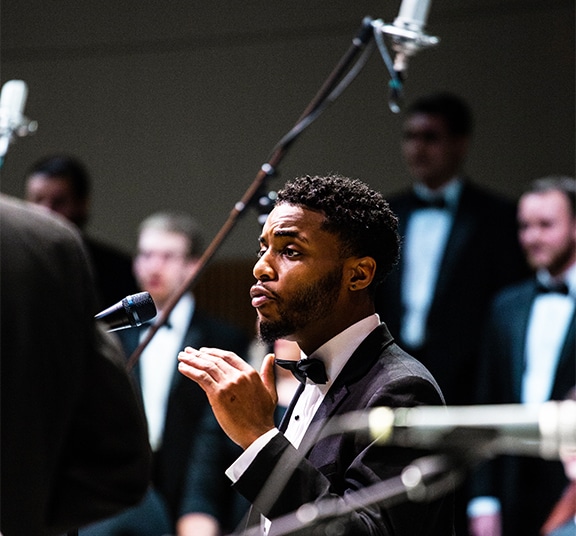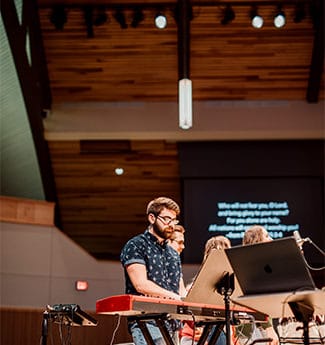At Cornerstone University, a major in music education prepares students seeking careers in areas associated with K-12 music teaching and students who desire to continue their studies at the graduate level.
Specialized Knowledge
Music education students will demonstrate a strong knowledge of musical form, function, performance and pedagogy.
- Understanding of basic instrumental/vocal skills.
- Sufficient understanding and capability of form and analysis.
- Place music in historical and cultural context.
- Use technology within their area of specialization.
- Broad understanding and philosophy of musical pedagogy.
Applied Knowledge and Collaborative Learning
Music education students will demonstrate performance and pedagogical competency in an educational setting.
- Technical skills requisite for artistic expression.
- Understanding of repertory and ability to perform cross section.
- Knowledge and skills sufficient to work as a leader.
- Keyboard accompaniment competency.
- Conducting competency.
- Collaborative competence through ensemble experience.
- Classroom planning and management ability.
Intellectual Skills
Cornerstone students will demonstrate their ability to integrate both traditional and non-traditional cognitive skills, including analytical inquiry, information literacy, quantitative fluency and communicative fluency.
Civic and Global Engagement
Cornerstone students will demonstrate intercultural competence in addressing civic, social, environmental and economic issues.
Biblical Worldview Integration
Cornerstone students will be able to articulate a Christ-centered worldview and its personal, professional and communal embodiment through Christian virtues.


















